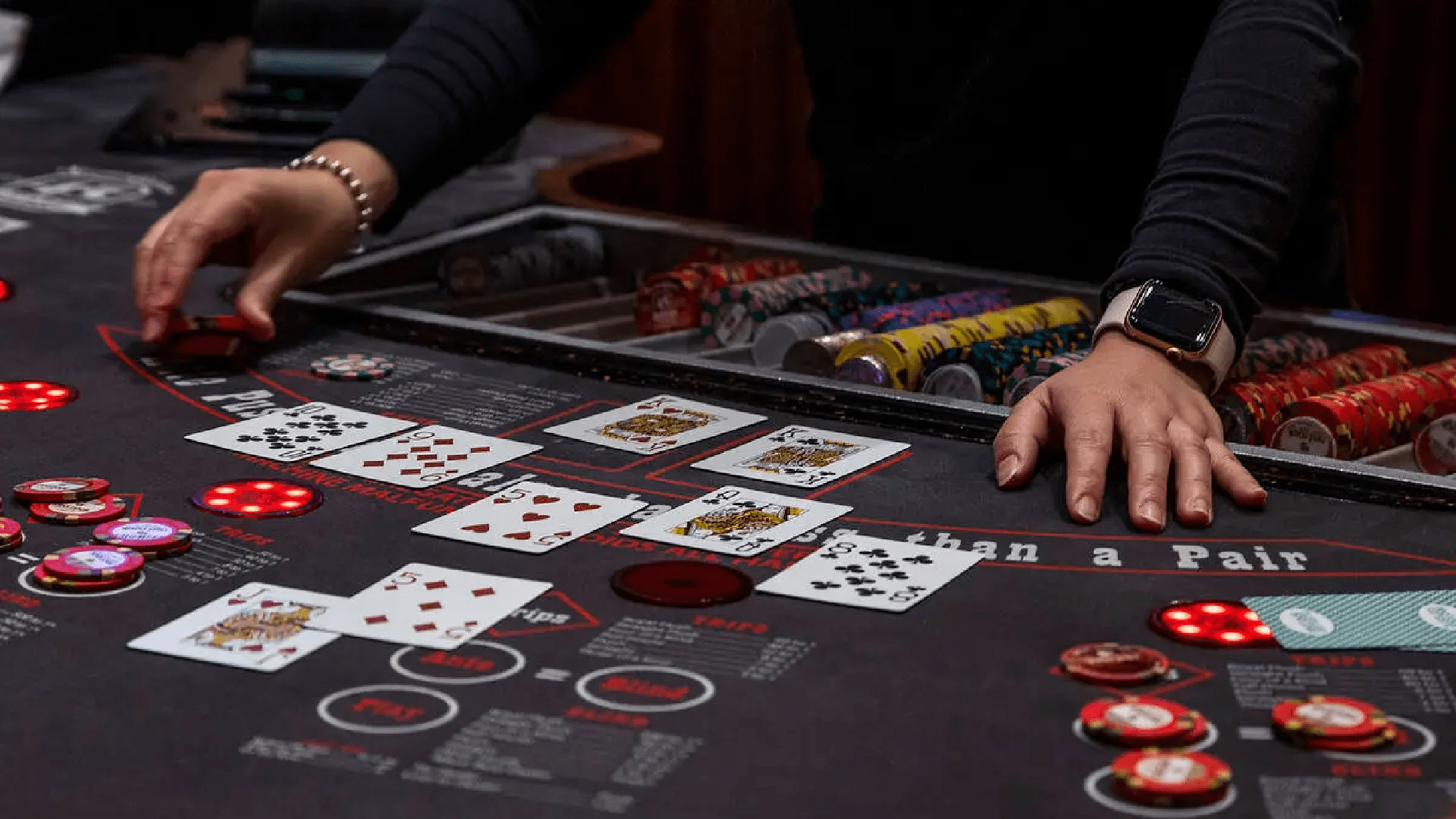
This catches many Vegas visitors off guard, including those who've gambled here for years, but tipping your dealer or server with casino chips is against state law.
It’s a rule for which no player has ever faced arrest for breaking. Nonetheless, assisting a casino worker with chips might lead to issues if they’re already under scrutiny for a different violation.
However, most are willing to take the risk. It’s preferable to avoid saying: “I apologize, I cannot have chips.” Could you please go to the casino ATM and withdraw cash for me, paying a $10 service fee?
That’s why many gamblers believe it’s permissible.
Paragraph 12.060 of the Nevada State Gaming Control Board’s (NGCB) regulations on casino chips and tokens clearly states: “A licensee must not accept chips or tokens in exchange for any goods or services at the licensee’s gaming venue, except for the particular purpose for which the chips or tokens were created.”
These uses encompass betting with the chips or exchanging them for cash at the same casino where you acquired or won them.
Full stop.
A smart and entertaining method to navigate this law — particularly with dealers — is to inquire if they would like you to make a bet for them before you step away from the table to cash out your winnings.
Many will consider the proposal as it will enhance the enjoyment of their shift.
Position the dealer bet outside your playing area, ensuring it's not on your chips, and make sure to come back with any cash that you earned.
The confusion arises because casinos in many other states permit tipping with chips. Additionally, this was not the legislation in Nevada before 1980. At that time, tokens from any casino in Nevada were accepted as legal currency throughout the state.
They were as valuable as cash when it came to settling a shrimp cocktail bill at the Golden Gate, purchasing your weekly groceries, or making a church contribution.
The updated regulation was enacted to align state law with federal guidelines that ban the establishment of new currencies. It also offers beneficial tax consequences for casinos, which do not face taxes on unclaimed chips.
Crucially, it aids in preventing the circulation of counterfeit, stolen, or misused chips. This turned into a significant issue with the introduction of expensive chips in the late ’70s.
Currently, Nevada law forbids the use of casino chips “for any financial purpose,” as stated in the state gaming regulations. All casinos display signs that inform gamblers about this law, yet many often go unnoticed or ignored.
Chips are not recognized as legal currency; they simply symbolize debts. They resemble vibrant circular IOUs rather than actual Benjamins. Consequently, they continue to be the casino's physical property, not yours.
This implies you cannot transfer the casino's debt to your taxi driver, the exotic dancer at the seedy gentleman’s club your taxi driver took you to for a kickback, or the lowlife from whom you purchased roofies while attempting to recreate “The Hangover” with your pals.
You’re also not permitted to use them for paying off debts, as Nolan Dalla learned, the difficult way, in 2008.
Dalla is not inexperienced with casinos. He’s a professional sports bettor and author, as well as the past media director for the World Series of Poker. He thought it wouldn’t be a problem to take a $5,000 chip from a poker friend who owed him that money.
He calculated incorrectly.
“I am down $5,000 to this day,” Dalla stated to Casino.org.
As he neared the cage at the MGM Grand, Dalla recounted, the cashier inquired if he had bought or won the chip on-site. When Dalla said that a friend had given it to him, this prompted a supervisor to quickly intervene in the discussion.
The inquiries he made prompted Dalla to call the friend who provided him with the chip. The friend informed the supervisor that he obtained the chip from another gambler to resolve a different debt.
According to Dalla, the supervisor not only declined to cash in the chip, but he also took it away from him.
“My most shocking disappointment was how uncooperative the Nevada Gaming Board was about this,” Dalla said. “Despite their public pronouncement that cases of fraud require the casino to provide evidence that the chip was obtained illegally, the board could not have been less helpful to me.”
Affirmative. Distributing casino chips online does not violate the aforementioned law. As long as their worth arises from their scarcity and desirability, rather than their function as money, which is nearly always true.
Individuals do not buy casino chips on eBay to trade for goods and services; they do so solely for collecting and investing. And casinos enjoy it when that happens, as whenever one of their IOUs is collected rather than cashed, it gets removed from circulation for many years — possibly even until the casino closes down. And casinos gain profits by never needing to cash in that IOU.
Nonetheless, if you put a contemporary $1,000 chip from an active casino up for sale and request around $1,000 due to its minimal collectible worth, the casino might raise objections and compel eBay to take down your listing.